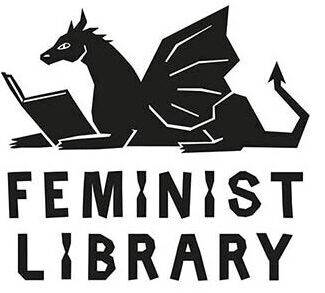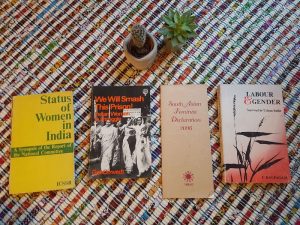Pat Caplan Donation
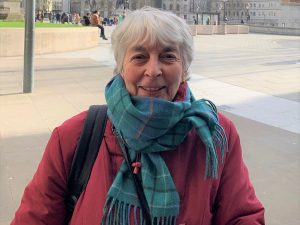 Pat Caplan has kindly donated to the Feminist Library around 14 folders of resources from teaching various courses on sex, gender and feminist theory, as well as some books and posters. These will be kept in our archive held at the Bishopsgate Institute. She provides some background to the collection below:
Pat Caplan has kindly donated to the Feminist Library around 14 folders of resources from teaching various courses on sex, gender and feminist theory, as well as some books and posters. These will be kept in our archive held at the Bishopsgate Institute. She provides some background to the collection below:
In 1970 I had just completed a year of postdoctoral fieldwork in Nepal. Returning to Kathmandu from Daiklekh, our research area much further north, my husband and I were stuck at the airfield in Surkhet, waiting several days for a plane. A Peace Corps volunteer loaned me Betty Friedan’s book ‘The Feminine Mystique’ which had recently been published and was one of the first feminist texts of the new (second) wave of feminism.
On return to the UK I found that I was pregnant, which brought home forcefully some of Friedan’s arguments. But I also found 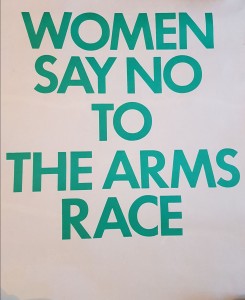 that other women like me, who had benefited from a university education, were equally dissatisfied. All over the country we began to form women’s groups engaging in reading texts like Friedan and Simone de Beauvoir’s ‘The Second Sex’ and also practising consciousness-raising. There were local and national demonstrations around the four demands and regular Women’s Liberation conferences.
that other women like me, who had benefited from a university education, were equally dissatisfied. All over the country we began to form women’s groups engaging in reading texts like Friedan and Simone de Beauvoir’s ‘The Second Sex’ and also practising consciousness-raising. There were local and national demonstrations around the four demands and regular Women’s Liberation conferences.
In my academic discipline, asocial anthropology, a group of us got together and formed the London Women’s Anthropology Group which met monthly and critiqued existing texts, as well as sharing our own professional problems.. These included difficulties with supervisors as well as problems in getting jobs in academia. Our first conference was a huge success and attended by a large number of women.
Although I was able to get some part-time teaching at the (newly opened) Open University and one of the London colleges, a full-time job was out of the question with caring responsibilities for our children and my parents. However, in 1975 I volunteered for the recently established Women’s Research and Resources Centre (which became the Feminist Library) and worked with Zoe Fairbairns in the Library for two days a week. The WRRC was the base for a number of groups, such as Women’s History with 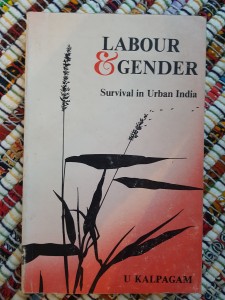 luminaries like Sally Alexander and Leonore Davidoff. It was a hive of activity and discussion of ideas. Later I donated both papers and books to the Library and these are now held in this archive.
luminaries like Sally Alexander and Leonore Davidoff. It was a hive of activity and discussion of ideas. Later I donated both papers and books to the Library and these are now held in this archive.
In 1977 I got a job teaching anthropology alongside Brian Morris at Goldsmiths College in south London. It took us a long time and a lot of effort to recruit more staff and form a department. Fortunately Brian was sympathetic to feminism, as were our first additional recruits: Nici Nelson and Olivia Harris.
By the 1980s, when anthropology became a full department at Goldsmiths, feminism had made considerable waves in anthropology as well as the other social sciences, history and literature. Numerous books were published, multi-disciplinary feminist journals established like Signs in the USA and Women’s Studies International Quarterly. The latter was founded by Dale Spender, one of the leading lights at the WRRC, from which many of the editorial board members were recruited.There were also many feminist university courses established, initially along the lines of ‘Women and’ but later ‘Gender and’. For many years I taught a course on Sex and Gender in Anthropology, which was later replaced by two courses on Feminist Theory and on Gender and the Body. Gender was finally being taken seriously in academia.
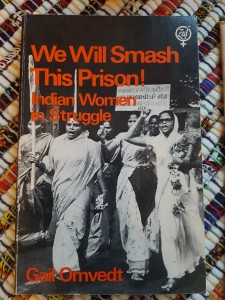 This did not mean, of course, that all problems had been solved – far from it. Not did feminism remain homogenous for long. There were debates about its relationship to race and ethnicity, to different forms of sexuality, to class, and there continued to be activist campaigns, including at Greenham Common. There were struggles to retain existing spaces for women, like the WRRC and the Fawcett Library, but also the founding of new spaces like the Glasgow Women’s Library.
This did not mean, of course, that all problems had been solved – far from it. Not did feminism remain homogenous for long. There were debates about its relationship to race and ethnicity, to different forms of sexuality, to class, and there continued to be activist campaigns, including at Greenham Common. There were struggles to retain existing spaces for women, like the WRRC and the Fawcett Library, but also the founding of new spaces like the Glasgow Women’s Library.
So how do those of us who were active in the 1970s and 1980s see feminism today? Fewer women today would definite themselves as feminists, yet in campaigns like ‘Presidents dinner’ and ‘Me too’ women of today have achieved what we could only dream of. Even so, still lots to be done and much unfinished business.
Further information on Pat Caplan is available on her webpage
2003. Hour-long interview with Alan Macfarlane for Anthropological Ancestors video archive.
Also available on youtube. live
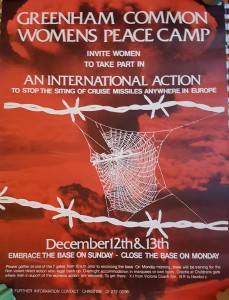 2009. Interview with Paul Thompson in series ‘Pioneers of Research: National Life Stories’ for the British Library Sound Archives 181109. live
2009. Interview with Paul Thompson in series ‘Pioneers of Research: National Life Stories’ for the British Library Sound Archives 181109. live
2004. L. Back. ‘Pat Caplan’ in V. Amit (ed.) Biographical Dictionary of Social And Cultural Anthropology London and New
York: Routledge
